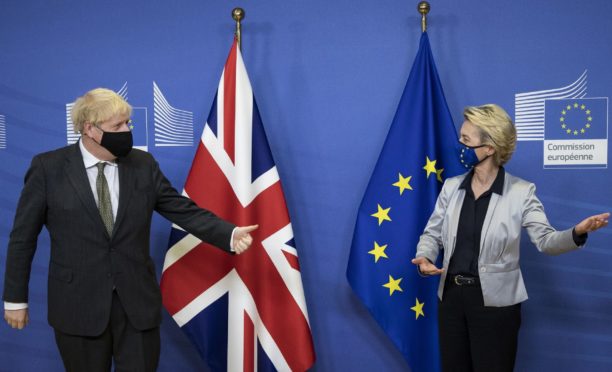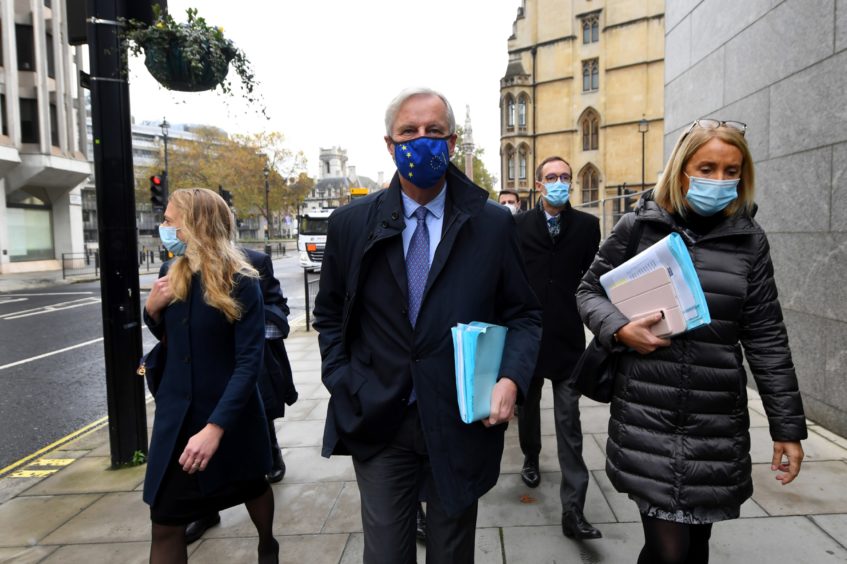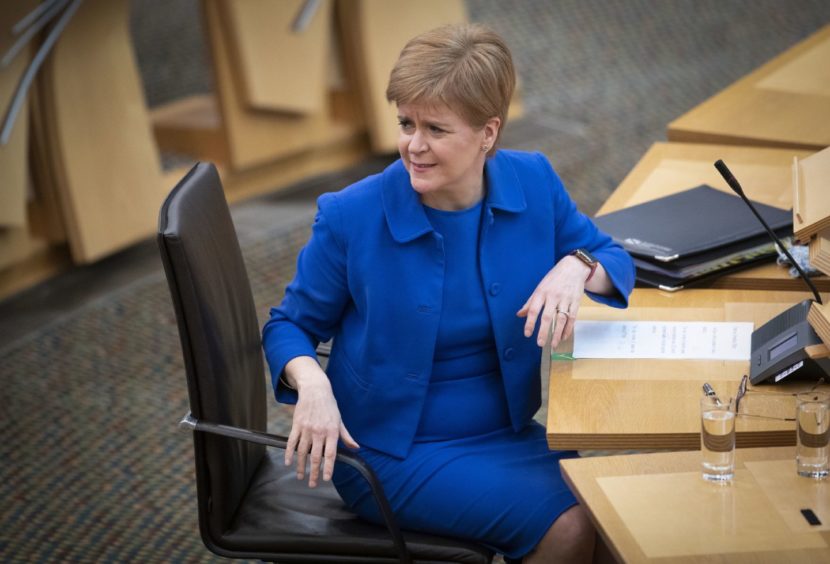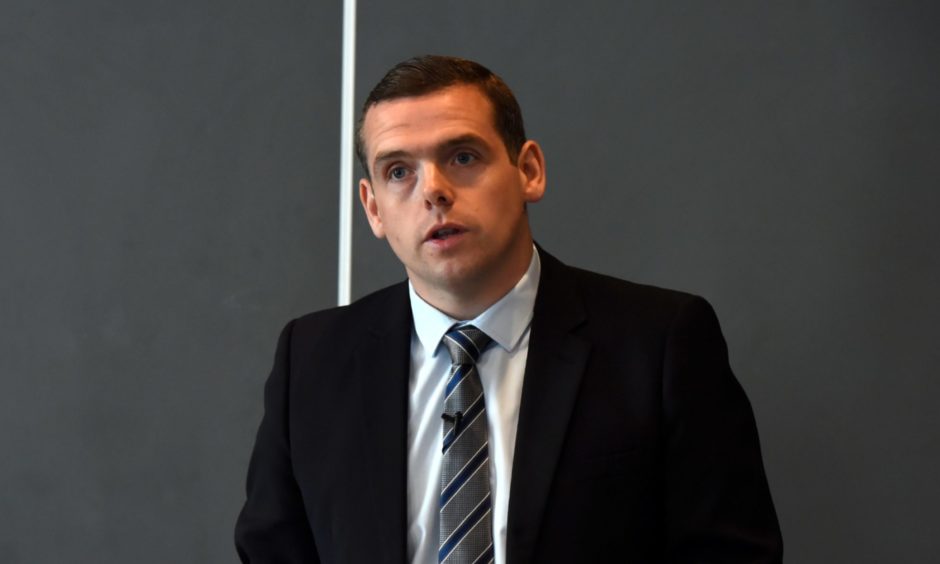A leading trade expert has warned it may be too late to secure an extension to the Brexit transition period and future negotiations could get even tougher if a deal cannot be reached before the deadline.
Dmitry Grozoubinski, visiting professor at Strathclyde University and a former negotiator for Australia at the World Trade Organisation (WTO), said the UK and EU should “absolutely” extend trade talks if both sides can work it out.
But the expert, who has experience negotiating complex trade agreements around the world, believes the “legal logistics” of avoiding a no-deal scenario just days before the UK crashes out on WTO rules means it may no longer be possible.
His comments come after Scottish political leaders clashed over whether discussions should be extended as a growing list of countries ban arrivals from the UK because of concerns over the spread of a new coronavirus strain.
Mr Grozoubinski warned the UK is likely to be locked in talks with EU leaders “for pretty much the rest of human history” and failure to agree a trade agreement now could lead to even greater complexities in future.
“My position is that you should have extended the transition period six months ago when you could have done it with an email to Brussels, with no further negotiation, within the legal framework of the Withdrawal Agreement,” he said.
“At the moment, the legal logistics of trying to extend the transition may not even be possible. If Boris Johnson, Ursula von der Leyen and the EU27 can find some way to do it, that would be magical and make everybody’s life better.
“Businesses might feel slightly jerked around because they were preparing for a date and now it’s going to be pushed back again but that’s a small price to pay. Absolutely, do it. But I’m not sure it’s even possible because of all the things you would have to negotiate to extend the transition at this point.”
Unconscionable
Mr Grozoubinski believes the best argument for extending the transition period was always that coronavirus would interfere with government and business preparations in the final months before the buffer comes to an end.
He said: “The best analogy I can think of is if you knew a flood was coming so you were building levies and in the middle of building them you suddenly had a torrential downpour. What has now been disrupted is the thing they were doing to avoid disruption, which just compounds it.”
Nicola Sturgeon’s call for the transition period to be extended appears to have been rejected by the UK Government ahead of an emergency Cobra meeting on Monday to respond to the closure of Channel ports to freight and passenger traffic.
The first minister said it is “imperative” that Boris Johnson seeks an agreement to extend the talks after France and other countries banned arrivals from the UK over a surge in Covid-19 cases and the emergence of a worrying new variant of the virus.
It’s now imperative that PM seeks an agreement to extend the Brexit transition period. The new Covid strain – & the various implications of it – means we face a profoundly serious situation, & it demands our 100% attention. It would be unconscionable to compound it with Brexit.
— Nicola Sturgeon (@NicolaSturgeon) December 20, 2020
“The new Covid strain – and the various implications of it – means we face a profoundly serious situation, it demands our 100% attention,” Ms Sturgeon said. “It would be unconscionable to compound it with Brexit.”
UK transport secretary Grant Shapps said there would “absolutely not” be an extension and the transition period will come to an end, with or without a deal.
He said: “I think the one thing which could actually add fuel to the fire would be ending something that everyone’s known is ending for a very long time, which is the end of the transition period, which completes on December 31, so absolutely not, no.”
Scottish Conservative leader Douglas Ross also insisted the transition period should not be extended and said he believes the two sides are “very close” to a deal so should focus instead to “just get it over the line”.
“Any extension just simply puts these difficult decisions off for another six months, another year,” Mr Ross said. “We’re at a very critical phase in the negotiations, we’re almost there, and I hope we can get that deal that works for both sides.”
Too big and too close
Mr Grozoubinski said there will be “thousands of issues to negotiate” regardless of whether or not a deal can be reached because both sides are “too big and too close to one another to just stop talking”.
“They are absolutely going to have to get back around the table at some point,” he said. “It would be insane to trade between the UK and EU forever on WTO terms. There is no purpose to it so they will eventually have to get back and get the free trade agreement, anyway, and that won’t be quick, either.”
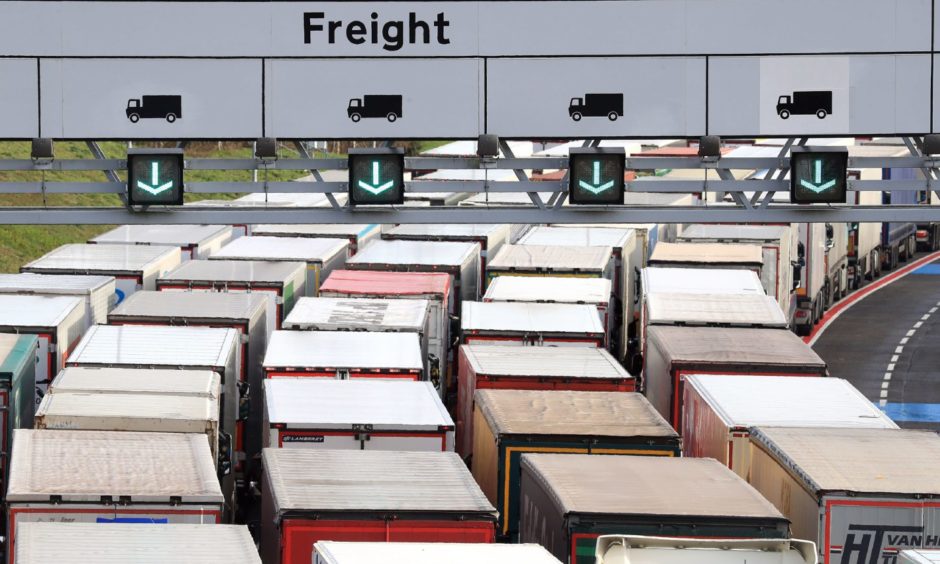
Mr Grozoubinski said the introduction of trade tariffs in the event of a no-deal means future negotiations will go from “maintaining as much of the status quo as the two parties can accept to removing protections that are already in place”.
He added: “Removing existing protection is much harder than keeping things the way they are because as soon as you have a tariff in place, you have a constituency built in to defend it, that benefits from it and wants it.”
